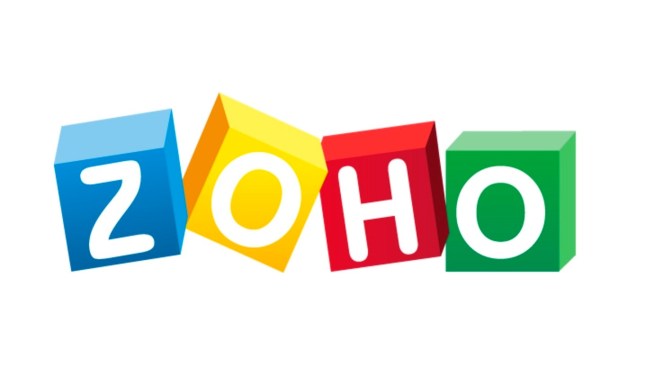This content was produced in partnership with Dashlane.
Picture this: You’re trying to log in to a service, but you forgot your username because it’s unique and doesn’t use your email address. Unfortunately, you don’t remember your password either. First, you’ll need to recover your username and then go through the motions to change your password. But here’s the thing: After you log in with your new password, there’s no guarantee you’ll remember it again a day later or longer. There should be a better way to manage and recover your passwords.
Cybersecurity, or rather the security of your data, is something that concerns everyone. One of the best ways to protect yourself, personally and professionally, is to make sure that you’re using secure passwords, along with two-factor authentication wherever applicable. Also, you should never reuse passwords across accounts, which is something that, admittedly, can be quite challenging to do. Keeping track of all your passwords because you likely have so many online accounts is not just troublesome, it’s downright impossible. There is just no way to keep tabs on all of that information without writing it down, typing it out, or recording it somewhere.
Juggling online accounts, passwords, and app logins is frustrating. It’s especially stressful when you can’t remember your info.
That’s precisely where password managers come into play. They make it possible, and easy, to record your passwords across all of your accounts, business or personal, and in a totally secure way. Dashlane is one such provider, serving employees at over 20,000 companies like ClickUp, Wayfair, Pepsi, and beyond. The way it works is simple: You use it to log in to various websites, apps, and services, and it securely stores all of your relevant information. It will help you generate secure passwords, too.
The days of resetting your account passwords several times in a row just to get in are over. Dashlane is a simple solution for protecting all of your data, and more importantly, helps you automatically log in to whatever service or app you need to get into. But it also includes a host of features that make it an excellent choice for teams and businesses, big to small. For example, you can securely share encrypted passwords with others — individuals or groups — when someone else needs access to an account. This prevents unsecured sharing over apps like Slack or even email, where someone nefarious could easily steal the info and wreak some havoc. And with more people working remotely, security is more important than ever. One survey found that increased password manager usage was the top change organizations have made as remote and hybrid work become more common.
With Dashlane’s new Starter Plan, you can give the service a try before committing for a full year. Check that out right now, or keep reading for a deep dive into what the incredible password manager has to offer — and how it can help your team.
Setting the scene

You need to log in, but you can’t remember your info. It happens to everyone. Or maybe you’re creating an entirely new account, and you need help choosing a secure password and then remembering it later. You can jot it all down on a piece of paper, but someone could find that info and use it against you. The same is true if you type it out in plain text in an app like notepad or a word processor. Right about now, it seems pretty enticing to use the same password you’ve used for all of your other accounts — 22% of workers have admitted to reusing passwords across both personal and work accounts. It’s easy to remember reused passwords, and you can get in quickly and painlessly. But it also means if your account is hacked through another service — or if the data is leaked in a breach of some kind — suddenly, whoever has that information has access to all of your accounts. They could infiltrate your personal life and access sensitive information, or they could create chaos with your business accounts.
These scenarios aren’t far-fetched either. Data breaches and cyberattacks happen all the time. No industry is immune.
As a business owner, manager, or even employee, there are always going to be online and digital accounts you’ll need, from invoicing and financing software to mission-critical applications like business analytics and marketing tools. The problem is, you have to remember the passwords for all of your personal accounts — some of which may be the same tools that you use for work — and your business accounts. It’s easy to fall into the trap of using one password for all accounts. But that’s not secure. It’s dangerous not just for you and your personal information but anyone associated with those accounts, including your work or business.
You absolutely need a better solution for creating, managing, and recalling your account passwords. Login information stored within your browser on a desktop or laptop is often not accessible on mobile. Even if you’re using the same browser across platforms, and that information is shared, it’s not secure at all. It should come as no surprise then, that this year, 82% of breaches involved the human element.
Dashlane is a password manager built from the ground up, exactly for this purpose, and it’s designed for teams. Administrators can monitor logins, plan member access, update policies, and access business directories to keep track of users, employees, partners, and beyond. But every person with access to the tool gets help securing their online accounts and identities. They can use the tool to manage and store passwords, create new ones, access accounts and related information, and create secure notes for reference later.
It fully pairs with existing identity providers that your business is using, like Google Suite, Microsoft One Sign-In, Okta, Azure, Duo, OneLogin, and more. Plus, the tool supports customizable policies, like offboarding employees, two-factor authentication, data encryption, and so on. Using existing support options, you can craft the platform that works best for your business and employees, making sure to secure all connected accounts.
U.S.-patented security architecture, AES 256-bit encryption, further protects the data. Two-factor authentication is built into Dashlane by design as well, and it integrates with mobile authenticator apps — like Authy — or users can leverage U2F keys.
Not just for business
Dashlane isn’t just available to businesses and large teams — you can use it to protect your individual and personal accounts, too. It radically simplifies your online life because you can use the password manager across all devices and all online accounts.
An important distinction to make here is that although you’re storing highly-sensitive information with the tool, you retain control of all your data. Dashlane cannot see the information you store. It’s never being shared with others, nor are they making money off the sensitive data connected to your account(s).
As they’ve said, “other companies don’t store your data safely because it’s not their job,” but at Dashlane, it’s what they do. In the 13 years Dashlane has been in business, the service has never been breached.
These same courtesies are extended no matter what type of account you have with Dashlane, personal or professional. Your data is always secure, always encrypted, and no one has access except you.
Try Dashlane’s new Starter plan
Dashlane has introduced a new Starter plan that lets you give the service a try before making a full-year commitment. While we certainly recommend signing up and securing your accounts, it makes sense that you’d want to give it a test run first.
Starting at just $20 per month for up to 10 seats, Dashlane is a cost-effective password management solution for teams, and it may be the solution you’ve been looking for all this time.



